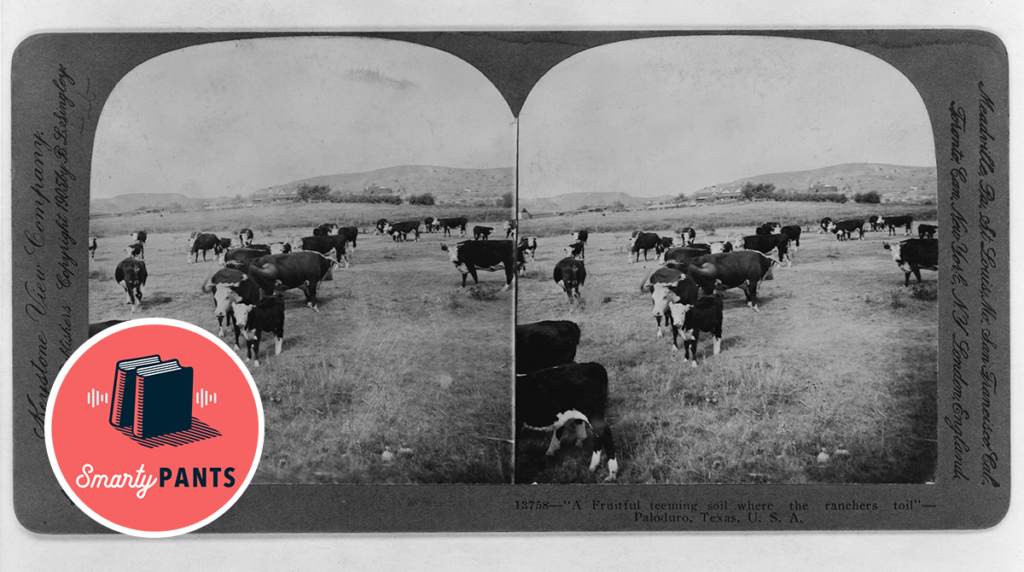
The production of beef requires 20 times more land and emits 20 times more greenhouse gas than the cultivation of beans, and seven times more than that of chicken. We’re not eating as much beef in America as we were in the 1970s, but we’ve held steady at over 50 pounds per person a year, and beef consumption is rising exponentially in places like Brazil and China. How did having cheap beef become so desirable that we were willing to overlook environmental degradation, worker safety, and animal welfare, in order for the average American to eat 220 pounds of meat a year? The historian Joshua Specht thinks the answer lies with 19th-century cattle. In the span of just a few decades, American beef production flipped from a small-scale, local operation to a highly centralized industry with its heart in the meatpacking plants of Chicago and railroad supplies veining the United States. Modern agribusiness as we know it today was born in the cattle-beef complex, and those meatpacking conglomerates did such a good job of aligning their interests with those of consumers that the system has remained largely unchanged for the past hundred years. The model is now used in the entire industry, from poultry to pig farming.
Go beyond the episode:
- Joshua Specht’s Red Meat Republic
- Read an excerpt from the book that takes you inside the slaughterhouse
- And Specht’s op-ed about how hamburgers have been conscripted into the fight over the Green New Deal
- The Guardian reports on the cost of working in a U.S. meat plant
- Two books that Specht recommends for further reading: Timothy Pachirat’s Every Twelve Seconds: Industrialized Slaughter and the Politics of Sight and William Cronon’s Nature’s Metropolis: Chicago and the Great West
- An abundance of statistics on contemporary meat consumption
Tune in every week to catch interviews with the liveliest voices from literature, the arts, sciences, history, and public affairs; reports on cutting-edge works in progress; long-form narratives; and compelling excerpts from new books. Hosted by Stephanie Bastek. Follow us on Twitter @TheAmScho or on Facebook.
Subscribe: iTunes • Feedburner • Stitcher • Google Play • Acast
Download the audio here (right click to “save link as …”)
Have suggestions for projects you’d like us to catch up on, or writers you want to hear from? Send us a note: podcast [at] theamericanscholar [dot] org. And rate us on iTunes! Our theme music was composed by Nathan Prillaman.


